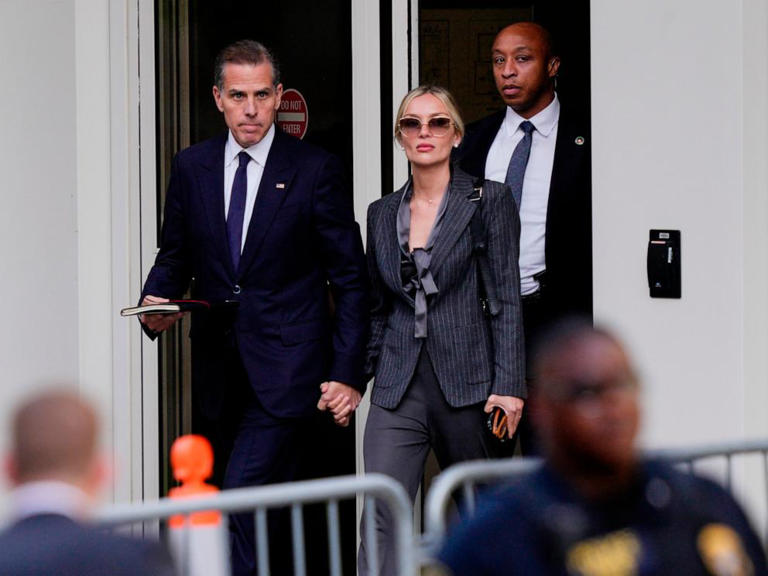In Wilmington, Delaware, the highly anticipated gun trial of Hunter Biden commenced on Tuesday with opening statements from both prosecution and defense teams.
A jury of six men and six women was sworn in on Monday, setting the stage for the trial of the president’s son, who faces three felony charges related to acquiring a firearm in 2018 amidst his struggle with drug addiction.
Special counsel David Weiss’ office described the case as straightforward, emphasizing that Hunter Biden allegedly lied on the ATF Form 4473 by denying his drug use or addiction at the time he purchased a firearm. Prosecutors are set to use text messages, excerpts from Hunter Biden’s memoir “Beautiful Things,” and other evidence to support their claims.
Hunter Biden’s defense attorney, Abbe Lowell, contended that the charges stem from a misunderstanding. Lowell argued that the language on the ATF form was ambiguous, particularly for someone like Biden, who had just completed an 11-day rehabilitation program and was living with a sober companion.
According to Lowell, Biden may have believed he was no longer a current user or addict, as the form’s question is phrased in the present tense without clear definitions of “user” or “addict.”
The prosecution’s first witness, FBI Special Agent Erika Jensen, is expected to present critical evidence, including text messages and parts of Hunter Biden’s memoir, to establish his state of mind and actions during the period in question.
The trial has drawn significant attention, with First Lady Jill Biden, Hunter Biden’s wife Melissa Cohen, and his stepsister Ashley Biden attending the first day of proceedings. President Joe Biden remained nearby at their Wilmington home.
Initially projected to take up to three days, jury selection was completed in just one day, allowing the trial to proceed ahead of schedule. Judge Maryellen Noreika has informed jurors that the trial could extend until June 14, with deliberations possibly stretching into the week of June 17.
As the trial progresses, both sides will present their evidence and arguments to convince the jury of their respective positions. The outcome of this high-profile case will hinge on the jury’s interpretation of the evidence and the credibility of the witnesses.



